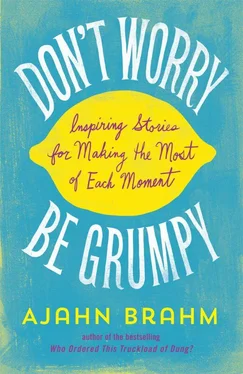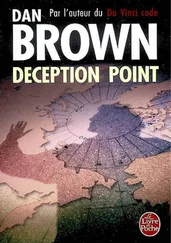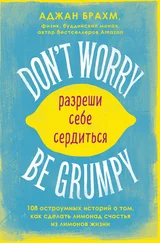“Very good!” I say with a grin.
In a relationship, if a problem arises and you think that is your partner’s problem, you will not be contributing to a solution. When you think that it is your own problem, then you will neglect half of the solution. But when every difficulty is regarded as “our” problem, you will find solutions together. That creates a rich and happy marriage.
Another part of the Buddhist wedding ceremony is sprinkling the happy couple with holy water — for good luck. Actually marriages these days need all the luck that they can get, so I usually drench them in it! When much of the bride’s makeup begins to dissolve, with mascara dribbling down her cheeks, I explain to the husband, “Now you can see what she really looks like!” Better he finds out now than later, I say.
Coming in from overseas to Perth Airport one day, I read the full version of the Australian customs regulations. I was surprised to read that one of the items that you are prohibited to import into Australia is holy water. Check it out! Perhaps this is the reason for such a prohibition:
In the good old days when Australian airports had a “green channel” through which you could just walk out of the airport, an Australian traveler was stopped at random. When the customs officers opened his suitcase, they found two bottles of undeclared whiskey hidden under the jackets and trousers.
“What are these?” asked an officer.
“I am a religious man,” said the traveler thinking quickly. “I have just returned from a pilgrimage to the holy site of Lourdes in France. This is only holy water.”
“Hmm,” replied the customs officer, “then why does it say Johnny Walker on the label?”
“I had to carry the holy water in something. These were two empty bottles that I used, okay? Can I go now?”
The suspicious customs officer decided to open one of the bottles to test it. He held it up to his nose and declared, “This isn’t holy water. It’s whiskey! Smell it for yourself.”
The traveler put the bottle to his nose, took a whiff, and exclaimed, “My God! You are right. It must be another miracle. Hallelujah!”
And from that time on, maybe, holy water became an item that people were prohibited from bringing in to Australia.
The Dangers of Driving Drunk
Buddhist monks are not allowed to turn water into wine, which may be why there are more Christians than Buddhists in Australia.
Many years ago, a man in Sydney decided to drive home after an office party where he had had too many beers. He reckoned there was a very good chance he wouldn’t get caught.
That evening however, the Sydney police had established a roadblock on a popular route to check the alcohol level of every driver. As luck would have it, the roadblock was on this man’s way home, and seeing the roadblock up ahead, he realized he was trapped. There was no way out.
He pulled over, waiting in line to be tested, and he resigned himself to being heavily fined, or maybe even losing his driver’s license. All he could do was to wait for the inevitable misery and humiliation. He felt the darkness of doom about to swallow him, and he sat glumly, cursing his bad luck.
When it got to his turn for testing, the officer asked him to step out of his car and handed him a breathalyzer to blow into.
He took the machine and was about to blow into it, when just at that moment, there was a loud CRASH! A vehicle pulling over at the roadblock had slowed down suddenly at the roadblock and had been rear-ended by the car behind. The officer took back the device, saying, “I have to attend to this accident. Get back in your car and go home.”
Stunned and in disbelief, he spun around, stumbled into the driver’s seat, put his foot on the pedal, and made a swift exit, singing to himself all the way home.
The following morning, he awoke to the sound of his doorbell. As he crawled out of bed to dress, he held his throbbing head, for he had a terrible hangover from all the partying the night before. A few minutes later, after stumbling down the stairs, he opened his front door to see two large Sydney policemen standing outside.
He was alarmed at first, but then he thought, “They can’t arrest me now. I’m not driving.”
“Good morning, officers,” he said, collecting himself. “What seems to be the problem?”
“Good morning, sir. Would you mind if we took a look inside your garage?”
He thought for a moment. He had nothing to hide. So what the hell?
“Of course,” he replied with a smile. “I always like to be of assistance to our local police force. Come with me.” And he strode confidently toward the garage.
But when he opened the garage door, his face went white, his lips began to quiver, and his eyes bulged so far they almost came out of their sockets. For inside his garage… there was a police car! He’d driven the wrong car home!
Such are the dangers of drunk driving.
People today assume that life has changed so much since ancient times. However, looking through some of the old stories of Buddhist monks and nuns misbehaving 2,500 years ago in India, it is clear that some things never change.
In a nuns’ monastery in the time of the Buddha, long before the days of sewage pipes, it was one nun’s job to empty out the buckets that collected the feces and other waste from the monastery toilets. Early one morning, instead of disposing of the waste in the designated spot, the negligent nun threw the excrement over the monastery wall.
As it happened, a well-dressed businessman on his way to the palace to meet the king was walking on the other side of the wall that morning. Whatever that man was thinking soon changed when a bucket of shit fell on his head.
He was upset. He was incensed. He was infuriated.
Knowing where the bucket of filth had come from, he shouted, “Those aren’t real nuns! They’re just old crones and hookers! I’ll burn their monastery down!”
Taking up one of the flaming torches used to light the street in early morning, he strode into the nuns monastery, cursing and screaming, with excrement all over his head.
A devout lay Buddhist saw that enraged man approaching and calmly inquired what had happened. Having been told that a bucket of filth had been thrown over him by one of those @#*%! nuns, the lay Buddhist exclaimed: “Awesome! You are so lucky! To receive a personal blessing from a holy nun in such a unique way is mega auspicious.”
“Really?” said the gullible businessman.
“Absolutely! Now go home, shower, and get changed, then go to the palace. Something wonderful will happen to you today.”
The businessman rushed back home, having no time to spare to burn down the nun’s monastery, washed, changed, and went to the palace. That morning, the king gave the businessman a very lucrative government contract.
The delighted businessman told all his friends, “If you want real good luck in your business, ask the holy nuns for the most auspicious of all blessings — holy shit. It worked for me!”
When the Buddha heard this story doing the rounds, he admonished the nuns. He told them that they were extremely lucky that day to have a quick-thinking layperson who convinced that superstitious businessman that having filth poured over your head is auspicious. Some people will believe anything.
As a result, the Buddha established a monastic rule for the nuns. For the past 2,500 years, the eighth rule for Buddhist nuns in the section called Pacittiya is: “A nun must not throw shit over the monastery wall.”
The Origin of Materialism
A good nun lived a very simple life, with few possessions and dwelling in a cave. Every morning, she would take her alms bowl to the nearby village to collect just enough food for her one meal of the day. She had plenty of time to meditate, study, and teach what she knew to any of the local villagers.
Читать дальше










